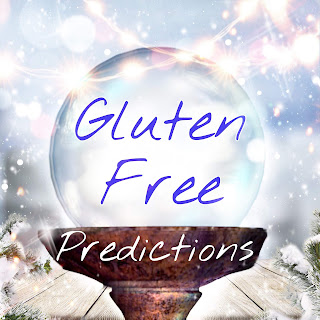1. Get tested for celiac disease before trying a gluten-free diet. Testing for celiac disease is only accurate if you are still eating gluten.
2. Eating gluten-free is not a weight loss diet, fad or trend. If this is your reason for trying a gluten-free diet, you will be highly disappointed with the results if you don’t have a medically necessary reason for following a gluten-free diet.
3. Gluten-free foods are not healthier choices. In fact, many gluten-free products may be unhealthier than their gluten counterparts and lacking in fiber. There is no benefit to choosing a gluten-free dessert, pizza or bread when you aren’t intolerant to gluten. In fact, this choice will likely be more expensive.
4. Determining if a food is gluten-free can be complicated. Do you know how to determine if oats are safe or unsafe? Do you know all the ways gluten can be hiding in foods, such as malt in Rice Krispies? Do you know how to prevent cross-contamination?
5. If you tested positive for celiac disease, then you need to follow a 100% gluten-free diet. This is the only treatment for celiac disease. Use this gluten-free guide to get started.
6. If you tested negative for celiac disease, but think your health symptoms may be caused by gluten, you could have gluten sensitivity. Here’s what Beyond Celiac recommends for diagnosing non-celiac gluten sensitivity.
“Non-celiac gluten sensitivity is diagnosed by process of exclusion. Experts recommend that you first get tested for a wheat allergy and for celiac disease. If both of those are negative, then your doctor may recommend a gluten elimination diet. If symptoms improve on a gluten-free diet, then you likely have non-celiac gluten sensitivity. It is very important that a knowledgeable physician oversee this entire process, which can help to omit patients self-diagnosing themselves and to reduce the likelihood of a placebo effect occurring during dietary intervention.”
Now that you have the facts, will you still choose a gluten-free diet?


